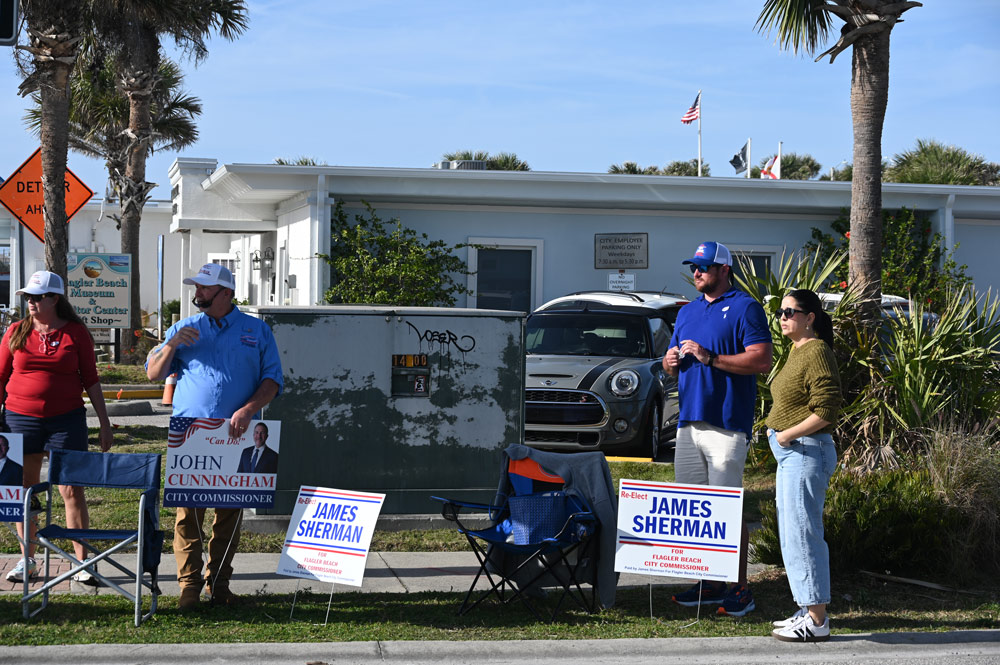
Flagler Beach will consider moving its elections from March every year to November, coinciding with general and presidential election cycles. Commissioners’ three-year terms would have to revert to two years, as had been the case two decades ago, or go to four-year terms.
The change, suggested as a discussion point by City Clerk Penny Overstreet Thursday evening, would potentially save the city $18,000 per election.
Overstreet said that’s the cost of each March election, which the city can split with Beverly Beach and Bunnell, cities that also hold their elections in March. But if Bunnell and Beverly Beach have no contested elections in any given year, Flagler Beach ends up carrying more or all of the cost.
Nothing was decided. Nothing can be decided just yet. Any such changes would have to be approved at a referendum. Overstreet made the suggestions since if the commission was interested in sending the questions to a referendum, it would be for the March 26 ballot, and the commission would have to decide on the questions by fall. The commission agreed to discuss the possibilities at a future commission meeting.
Many cities have customarily held their elections on days well distinguished from general or presidential elections on the assumption that it would focus voters’ involvement on their own municipal issues. It’s done no such thing, lowering turnout instead.
Palm Coast used to have odd-year elections until 2011. Between 1999 and 2011, most of its elections had drawn a turnout below 20 percent. When Jon Netts was re-elected mayor in 2011, he’d gotten the votes of just 5.7 percent of the city’s registered voters. Last March, when Flagler Beach and Bunnell held their last municipal elections, just 18 percent of Bunnell voters turned out, and 22 percent of Flagler Beach‘s did (1,015 of 4,669 registered voters).
In 2011 in Palm Coast, 87 percent of voters agreed at a referendum to move city elections to even years (in the same election that re-elected Netts). The city had said at the time that it would save up to $100,000 per election cycle. It also vastly improved participation in city elections.
Overstreet mentioned the Palm Coast change as a local precedent. “There would probably be a little bit of heartburn,” she told the city commissioners. “Someone’s term would have to be shortened, but it could be worked out. It’s just a forward cost savings.”
When Palm Coast made its change to even years, no council members’ terms were shortened. They were lengthened. Then-Mayor Jon Netts served five years instead of four, as did Council member Jason DeLorenzo. The city did not hold another election until 2014. By the time the two city races on the ballot reached the general election that November, more than half the registered electorate cast ballots.
In 2015, the Florida House on a 70-47 vote approved a bill that would have required Florida’s 411 cities to all hold their elections in even years. Most cities at the time did not do so. The proposal died in the Senate.
The Flagler Beach City Commission may also consider term limits and other election-related changes.





























Leave a Reply